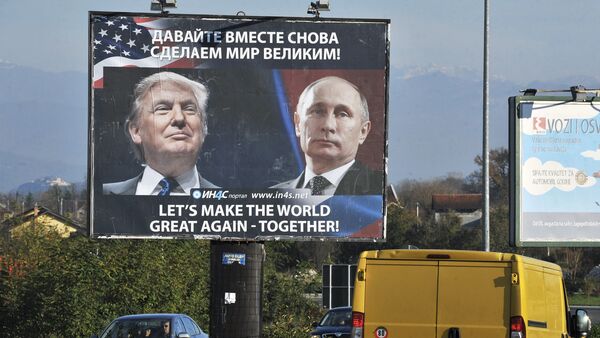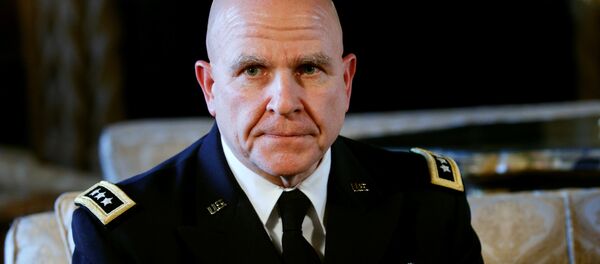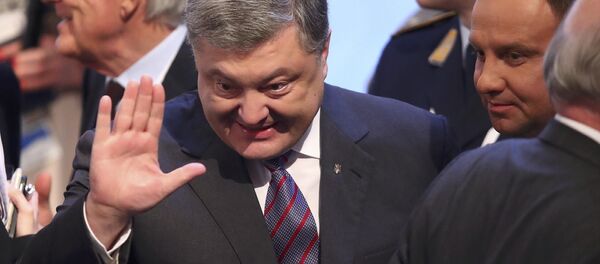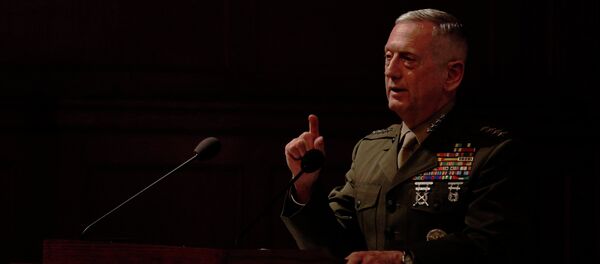On Tuesday, asked by reporters whether the decision to tap General H.R. McMaster as National Security Advisor was an indication that the President planned to take a tough stance toward Russia, the White House spokesman said that Trump "has made it very clear that if he can get a deal with Russia, something that the last several administrations have tried to do, that he's going to do it. And if he can't, he won't. But he is going to try. And I think his success as a businessman and negotiator should be seen as a positive sign for him to be able to do that."
Trump, Spicer added, "understands that if he can find common ground [with Russia] on defeating ISIS [Daesh] and combatting terrorism, growing the economy where we can find areas of economic interest, then we're going to do it…I think where others have failed, he's going to make sure that he does everything possible to make sure that if it's in the interest of the United States, he will get a deal."
Davis' commentary followed a statement earlier in the day by Russian Defense Minister Sergei Shoigu, who said that the two countries have a common enemy in Daesh, and could cooperate against the terrorists militarily in Raqqa.
"We have everything at our disposal for cooperating effectively – absolutely everything," Shoigu said. "There are no hindrances to starting this work together. If we are speaking very precisely, today we could start joint operations in Raqqa." All that's necessary, he noted, was for the two countries "to make themselves heard and understood…We should pause, sit down at the table and begin to talk to one another normally."
The defense minister added that "calm, constructive and consistent work" to normalize the Russian-US relationship was possible; all that's necessary is for the West to stop seeing Russia as a boogieman and get down to business.
In other words, while the White House has hinted in in the clearest possible terms to date that rapprochement is possible, the Pentagon, so far, hasn't followed through where it counts, in Syria.
Speaking to RIA Novosti about the businesslike language that's now coming out of Washington, Timofei Bordachev, director of the Center for Comprehensive European and International Studies at Moscow's Higher School of Economics, suggested that it was important to take Trump's past as a businessman into account. The President, he said, had made it very clear even during the election campaign that he would be incorporating the language, methods and techniques that are common in the business world.
Therefore, Bordachev noted, it's little surprise that the word "deal" has appeared in the lexicon of Washington politicians. With this in mind, the observer stressed that Moscow must be mindful of the fact that a 'deal' in business is not always a win-win arrangement; it can be presented and implemented in such a way as to be a no-win situation, or a loss for one of the two parties.
Moscow, for its part, has already firmly indicated that it would not abandon its partnership with either Beijing or Tehran for vague promises about improved relations with Washington.
Furthermore, if a 'deal' is thought of as a transaction, the question arises about what assets such a transaction may involve. Sanctions are unlikely to be a subject of any exchange, since they were introduced against Russia unilaterally. As for cooperation against terrorism – that's something that is in both countries' interest, and it's unlikely for Moscow to make a tradeoff for cooperation that should already be occurring anyway.
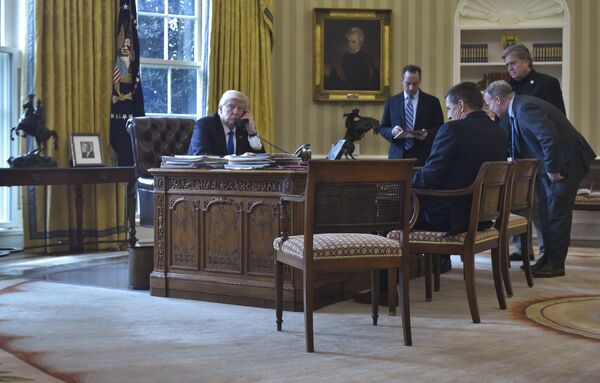
"There are some very specific things that interest Russia," Bordachev said. "For example, the dissolution of NATO, or a constitution for Ukraine that provides for its federalization. But it's difficult to imagine that the US could make a deal on such issues," he added. Personally, Bordachev does not see any significant transactional assets that the countries could actually exchange, and believes that relations should therefore be built in the political and diplomatic area, rather than based on some transactional grand bargain.
"The first month of Trump's work in the White House has demonstrated that he feels like Gulliver felt when he was tied down by the Lilliputians," Orlov said. "His opportunities to implement the policies which he outlined have proven to be very limited."
As for the possible 'deal' talked about by Spicer, "this will be a possibility, but only if it is beneficial to Russia, and not just to the United States," the expert added.
"Everything will depend on the conditions, and the specific proposals that are made. There are certain boundaries – a kind of 'red line' that Russia could never cross for the sake of reaching agreement. For example, Russia would never agree to a change in Crimea's status, even though this is the main condition that many in the West say is indispensable to abolishing anti-Russian sanctions," the expert said.
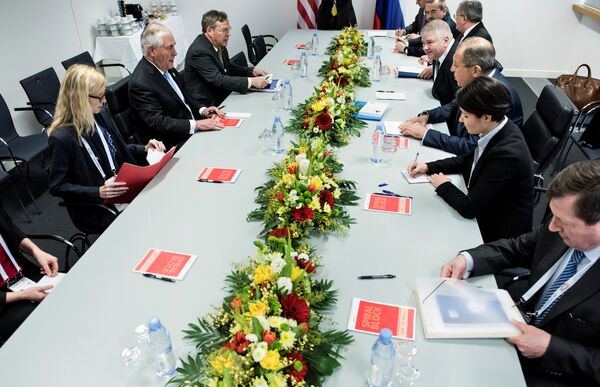
Even joint cooperation against terrorism, which may seem like a no-brainer at first, is not so easy in practice, Orlov noted. Even if Trump would sincerely like to see such cooperation happening, the question of whether his generals, who have been brought up on anti-Russian rhetoric over the course of many decades, would follow through is another issue altogether. Davis' answers in his recent interview with Sputnik hint at the answer, Orlov said.
"Relations with Russia are a kind of foreign policy indicator, and any statements by the President or members of his staff on this subject serve as a measure of just how far Trump himself is ready to be integrated into the current American political system, with its values and priorities," Bialy explained.
"In a country like the United States, where there is no single official center of strategic decision-making, the existence of other centers of power becomes inevitable; these work to guide both domestic and foreign policy, and as the process of integrating the new President into this system continues, any outgoing signals he makes are addressed to them."
Therefore, Bialy noted, Trump is forced to walk a tightrope – to remind the establishment that he does not intend to give up on his campaign promises, but at the same time to assure it that he does not intend to compromise US national interests.
